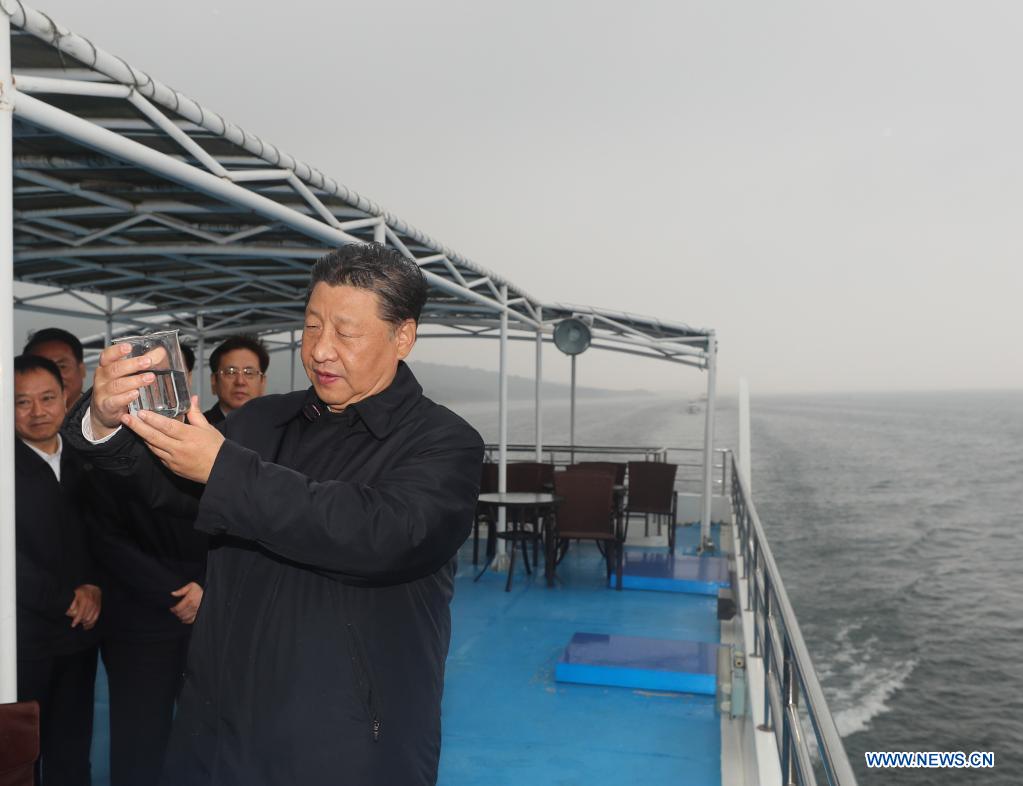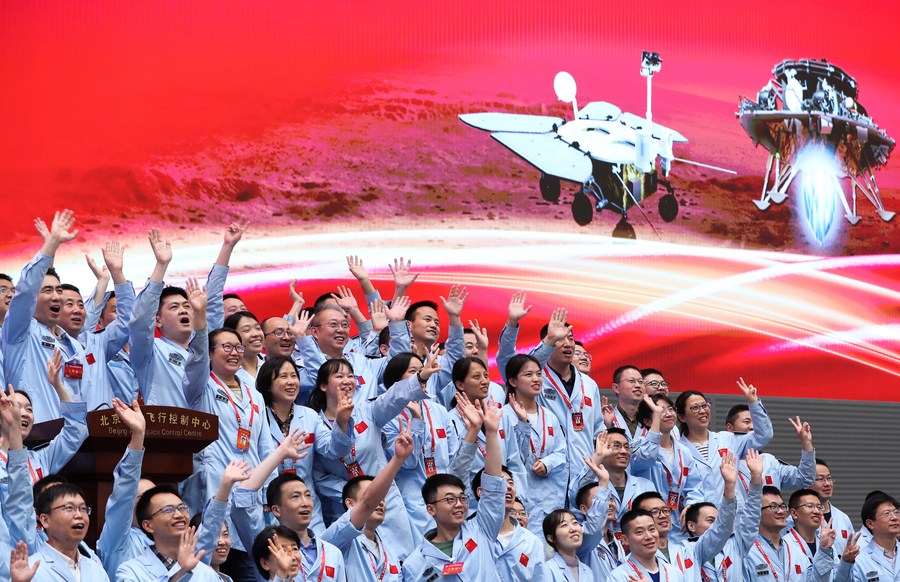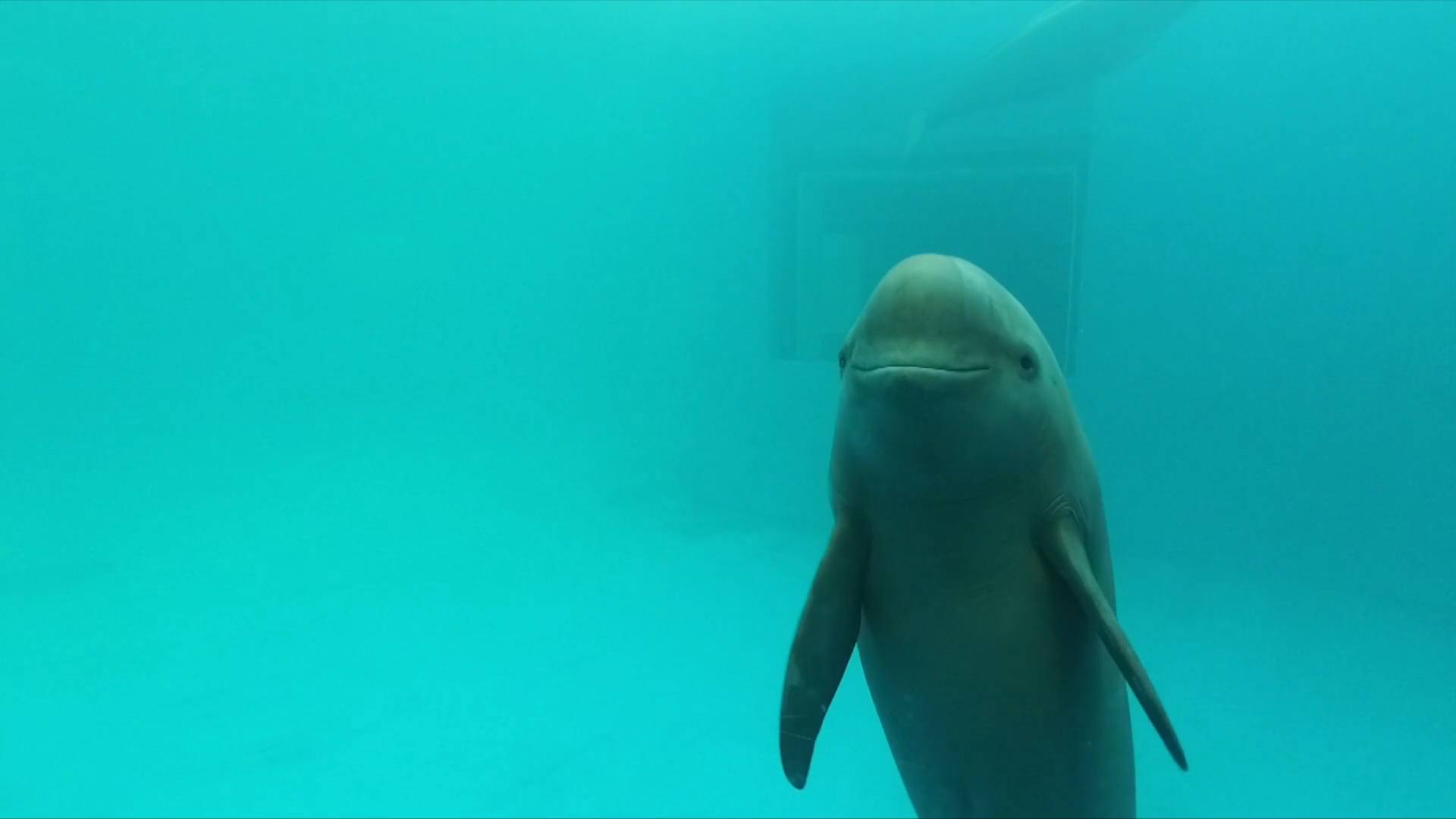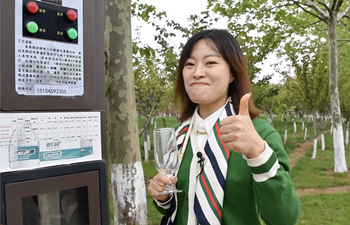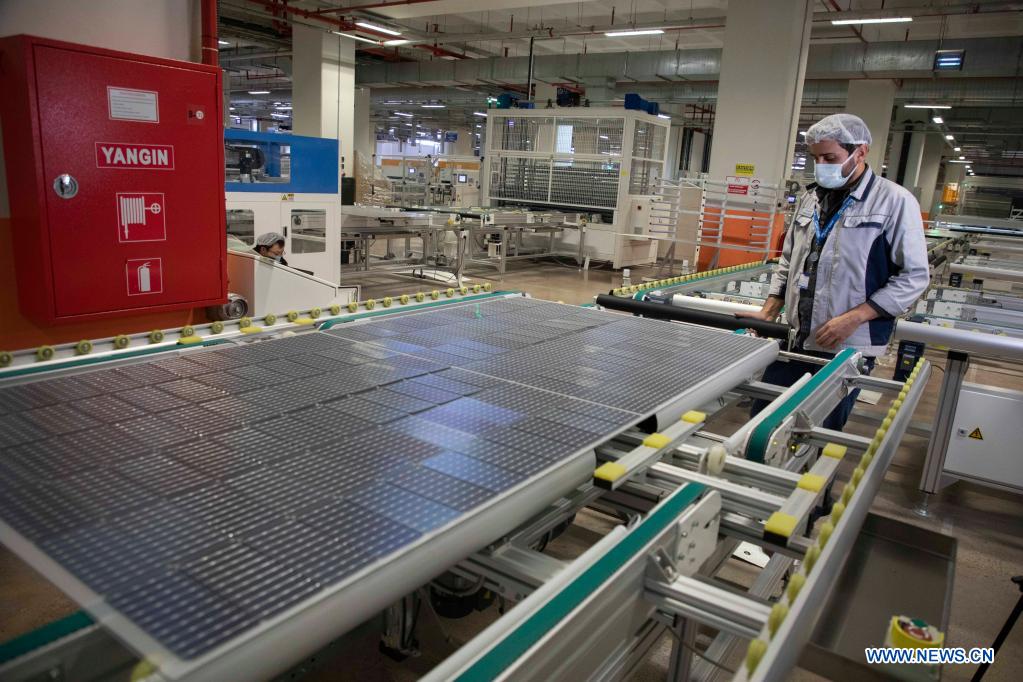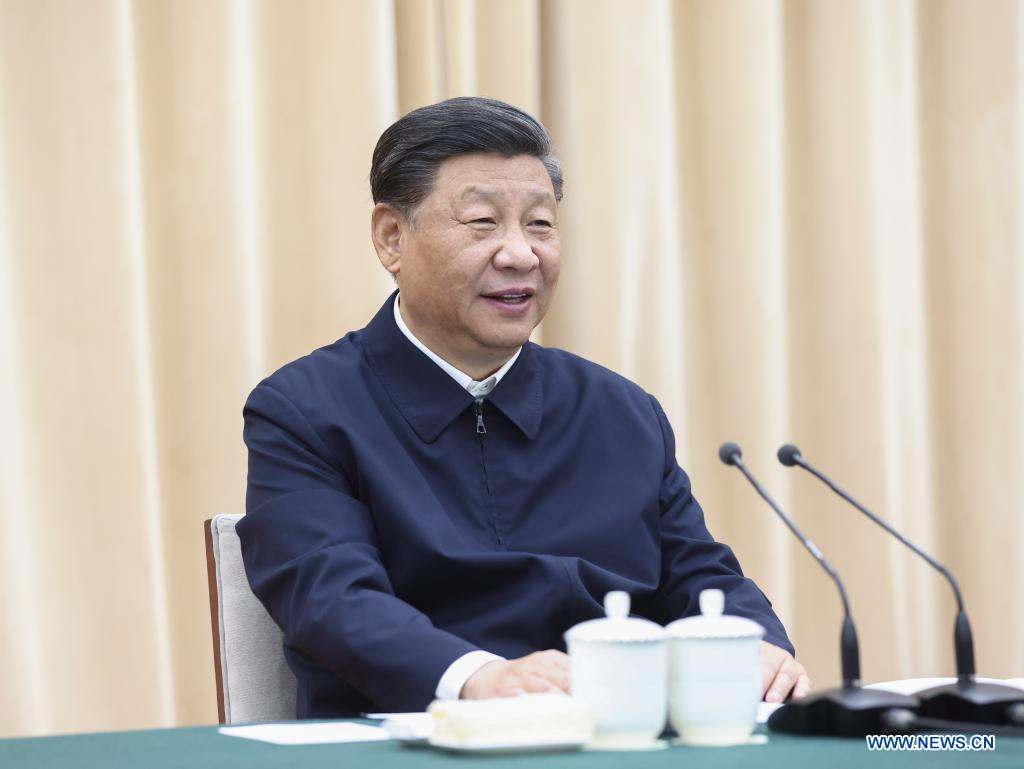
Chinese President Xi Jinping, also general secretary of the Communist Party of China Central Committee and chairman of the Central Military Commission, convenes a symposium on advancing the high-quality follow-up development of the South-to-North Water Diversion Project, in Nanyang, central China's Henan Province, May 14, 2021. (Xinhua/Ju Peng)
NANYANG, Henan, May 14 -- President Xi Jinping on Friday convened a symposium on advancing the high-quality follow-up development of China's mega water diversion project.
Xi, also general secretary of the Communist Party of China (CPC) Central Committee and chairman of the Central Military Commission, stressed the need to analyze the new situation and tasks facing the South-to-North Water Diversion Project and push for the scientific planning and construction of the project to promote the effective and economical use of water resources.
The symposium was held in the city of Nanyang, central China's Henan Province.
Speaking at the symposium, Xi said strong support of water resources is needed in the country's efforts to shape a nationwide unified market, boost smooth domestic circulation, and promote the coordinated development of the southern and northern regions.
Noting the extremely unbalanced distribution of water resources in China, Xi said the South-to-North Water Diversion Project is a backbone project for the allocation of the resources across different river basins and regions.
The project has transferred over 40 billion cubic meters of water, directly benefiting about 120 million people and playing important roles in economic and social development and environmental protection.
Xi highlighted the valuable experience drawn for constructing major water diversion projects: coordinating resources across the nation, concentrating all efforts to get big things done, respecting objective laws, as well as good planning, water conservation, pollution control, and precision in diverting water.
Xi said water diversion must continue in a scientific manner and attention must be given to strengthening water conservation to better manage supply and demand.
He stressed the importance of strengthening eco-environment protection, particularly pollution prevention and control in areas along the water transmission routes and in water-receiving regions.
He also stressed accelerating the construction of a national water network, urging efforts to enhance connectivity, thus speeding up the building of the network's main structure.
Xi called for attention to the water problems such as the sharp decrease of sediment inflows in northern China's main rivers, especially the Yellow River, and the over-extraction of groundwater.
He called for planning and design programs that can stand the test of time.
Vice Premier Han Zheng, also a member of the Standing Committee of the Political Bureau of the CPC Central Committee, attended the symposium and called for implementing Xi's speech and instructions.
Before the symposium, Xi visited the county of Xichuan on Thursday afternoon to inspect the construction, management and operation of the middle route of the South-to-North Water Diversion Project, as well as the resettlement of people relocated because of the project.
At the Taocha Canal Head, he stressed the ecological conservation of the water-source region, while at the village of Zouzhuang, he pledged to continue to support the relocated people.
Noting that the Party's 100-year history is one of dedication to people's well-being, Xi asked local Party organizations and members to unite and lead the people in striving towards common prosperity.
During the inspection, Xi stopped by a wheat field to check on crop growth and called for efforts to achieve breakthroughs in cultivating high-quality seeds.
"We should rely on Chinese seeds to ensure China's food security," Xi said.
On Wednesday, Xi visited a memorial facility dedicated to Zhang Zhongjing, a famous Chinese pharmacologist and physician of the Eastern Han Dynasty (25-220).
Noting that traditional Chinese medicine is a great creation of the Chinese nation, Xi urged efforts to ensure its preservation and development.
Xi then went to a park exhibiting the Rosa Chinensis -- or the Chinese rose -- and a local company producing mugwort products.
Stressing that local specialty industries have vast potential, Xi called for creating more jobs for the farmers and sharing with them the benefits.

